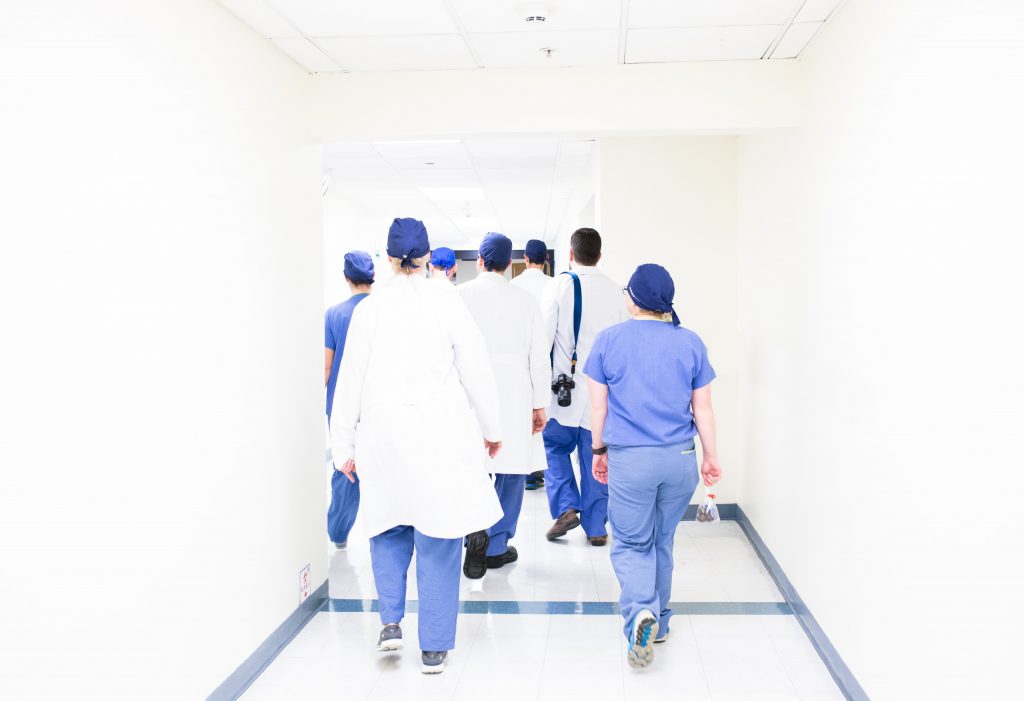If there’s anyone of sound mind out there who doubts how much pressure healthcare providers are facing, please point them in the direction of Workforce burnout and resilience in the NHS and social care.
This June 2021 report, presented to the Government Health and Social Care Committee, sets out in stark terms just what those working in the sector are up against, and the toll that it’s taking. None of it makes for cheery reading.
Amongst the many powerful testimonies and expert opinions is one that’s especially alarming: Professor Michael West, an expert in leadership and culture in healthcare, explained how burnout and overwork are related to medical errors.
The headline figure, picked up in the national press, is that chronically overworked doctors can make between 45% and 63% more serious medical errors over a three-month period. The finding is one of a number of studies linking medical errors to practitioner burnout and stress.
It’s not just stress — wellbeing and decision-making
In the types of medical errors referenced, one of the principal causes is poor decision-making by medical staff. It’s no surprise that stress and overwork both compromise our decision-making ability, but they are only two of a range of factors impacting performance.
For example, apart from overwork (but obviously related to it), many medical staff also suffer from sleep deprivation and disturbance, emotional distress, lack of exercise, poor nutrition, and a physically challenging environment.
A body of evidence already shows how each of these impacts working memory, the cognitive system most associated with decision-making. Researchers are also establishing direct evidence of how each undermines our decision-making ability (e.g., sleep).
Unpicking the details of these interactions needs more research. But what seems clear right now is that decision-making systems of the brain don’t sit in splendid isolation, unaffected by our overall wellbeing and health. In fact, the reverse is true: wellbeing and health underpin optimal decision-making.
And that means that if we want our doctors, nurses and other professionals to make good decisions, and keep errors to a minimum, their wellbeing needs to be supported.
“There’s no time to support wellbeing”
But how can a health system, already stretched to the limit, accommodate its workers’ wellbeing? With patients to treat, surely, it’s something that will have to wait.
So far, that’s exactly what’s been happening. A survey conducted by Nursing Times in March 2021 found that staff self-care was poor, and wellbeing either ignored, paid lip-service, or reduced to meaningless tick-lists.
In the midst of a pandemic, it’s an understandable response. Yet it’s one that’s fundamentally flawed. The truth is that people can’t be cared for properly if the carers are no longer functioning. As we’re told on pre-flight safety announcements: if the oxygen masks appear, fit your own first. Only then are you’re in a position to help others.
For that reason, the wellbeing of medical staff simply cannot afford to wait. It cannot be treated as an optional extra. Each health worker’s decision-making, the cornerstone of their work, rests on their emotional, psychological and physical wellbeing.
What wellbeing support is available?
Healthcare managers hoping to support their staff’s wellbeing face formidable challenges. They face constraints of scheduling, staff availability, budget and more.
Good quality wellbeing support is available from specialist providers, but this raises an additional problem: choosing one that is appropriate for their team. Managers soon discover that there’s a bewildering variety of wellbeing interventions and providers. Selecting one that’s likely to be impactful and time-efficient requires some due diligence.
To help, we suggest that managers ask three questions about potential interventions for their medical staff:
- Is the intervention evidence-based? Medical staff in particular tend to be sceptical of methods which don’t reflect mainstream science. Interventions based on robust evidence are more likely to be well-received, increasing their effectiveness.
- Does the intervention ethically gather the workers’ own health data? Allowing workers to see the cause and effect of their own wellbeing is powerful in itself, and allows for individual, targeted wellbeing advice.
- Does the intervention take a holistic approach to wellbeing? Interventions which only investigate one aspect of wellbeing are less likely to have an impact. For example, attempting to tackle stress without addressing sleep quality may be ineffective, since the two interact.
The need for good decision making
We all make errors in our working lives. For most of us, most of the time, the consequences tend to be trivial. But workers in the medical sector, from nurses to surgeons, GPs to ambulance staff, lack that luxury. Their decisions and their mistakes can have immediate and potentially catastrophic effects on other people’s lives.
We owe it to our medical teams to support their wellbeing, allowing them to function at their best as skilled and caring decision-makers.
ART Health Solutions is a wellbeing consultancy, providing effective, science-based wellbeing recommendations. Our bespoke solutions are generated by gathering data directly from the organisation and its employees. Having proven our methods working with large, multinational corporations, we’re excited to bring our expertise to small and medium-size UK businesses.
To learn how we can benefit your company, please contact our friendly team.

